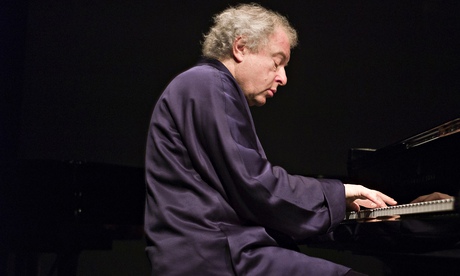
Tenor Mark Padmore and pianist András Schiff are certainly no strangers to Beethoven and Schubert songs, or indeed to the Wigmore Hall audience. But there was a third, unfamiliar entity on the stage here: Schiff’s instrument, an 1820 Brodmann fortepiano that would barely have had its varnish scratched when Schubert wrote Die schöne Müllerin. Its tone – gauzy or glassy, soft or hard, depending on Schiff’s deployment of its pedals and the pitch of the notes – shaped the character of this performance entirely.
To some extent, the fortepiano gave Padmore more freedom than a loud modern Steinway: he has always made words his priority, and here he could sing at a level akin to speaking. He opened with three standalone Beethoven songs, and began the last of them, Adelaide, with a tone that was startling in its purity. Even when the fortepiano burgeoned into the song’s second verse, he still didn’t have to push to be heard.
In Beethoven’s song cycle An die ferne Geliebte, the fortepiano sounded as far away in the first song as the mist-shrouded meadows Padmore was singing about. Schiff merged the six songs together seamlessly, and only at the very end was his instrument found wanting, when its relatively muted tone couldn’t match Padmore’s expansiveness.
Die schöne Müllerin inhabited a world a few inches further to the left on the keyboard, and the change in mood was immediate: the fortepiano’s way of emphasising the lowest notes made several numbers sound starker and more ominous than usual. Padmore’s singing was deeply felt: vulnerable in Der Neugierige, ringingly confident in Ungeduld. Perhaps in some of the songs at the midpoint, where the narrator is about as close to contentment as a romantic poet ever gets, we could have had more of his broadest tone; perhaps that would have been too comforting. The last song sealed a bleakly moving interpretation. Padmore stepped to one side to deliver it, out of the main light, with the fortepiano’s tinkling tone offering eerily soothing support.

